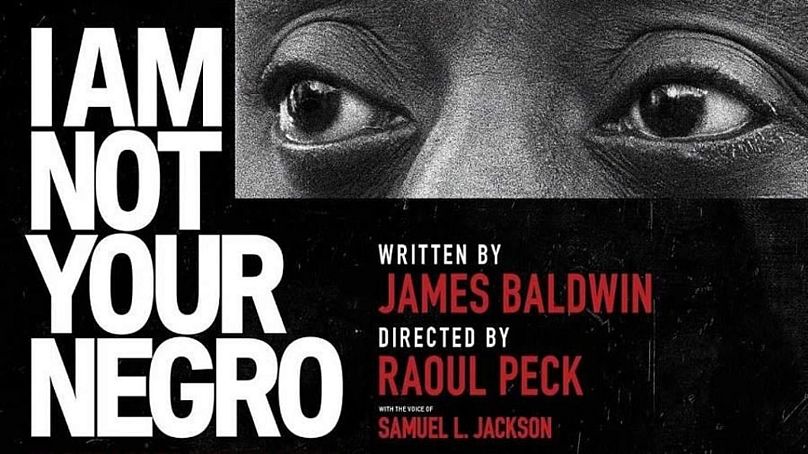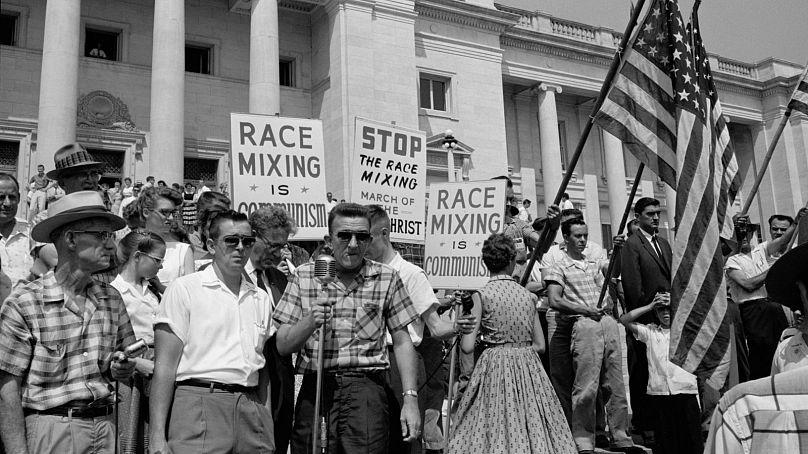A James Baldwin biopic has been announced - but who was the author / activist? Here's a film recommendation that is a must-watch to begin to appreciate the timeless resonance of one of the 20th century’s greatest minds.
American actor Billy Porter, known for his Broadway career and his Emmy-winning performance in Pose, will be portraying the author and civil rights activist James Baldwin (1924 – 1987) in an upcoming biopic.
The currently untitled film will trace the life of the writer and activist, based on David Leeming’s 1994 book 'James Baldwin: A Biography'.
Porter, 53, will co-write the script with Dan McCabe, as well as co-produce with Byron Allen’s Media Group Pictures.
Porter, who is one Oscar short of an EGOT (an Emmy, Grammy, Oscar and Tony win), says it has been a career-long dream to tell the story of Baldwin on film.
“As a Black queer man on this planet with relative consciousness I find myself, like James Baldwin said, ‘in a rage all the time.’ I am because James was,” Porter said in a statement. “I stand on James Baldwin’s shoulders, and I intend to expand his legacy for generations to come.”
Byron Allen from Allen Media Group said: “Billy Porter and Dan McCabe’s talent and commitment to amplifying James Baldwin’s legacy and contributions are invaluable and unmatched for this unique and epic story.”
Born in Harlem in 1924, Baldwin was a Black gay writer whose influential works include 'Go Tell It on the Mountain', 'Giovanni’s Room', 'Notes of a Native Son' and 'If Beale Street Could Talk', the latter of which was adapted to the screen in Barry Jenkins’ stunning 2018 film.
In addition to writing, Baldwin fought for racial justice in the US civil rights movement.
Porter referenced the legendary writer in his 2019 Emmys acceptance speech when he became the first openly gay black man to win Outstanding Lead Actor in a Drama Series for Pose. He quoted Baldwin’s 1960 essay, 'They Can’t Turn Back': “It took many years of vomiting up all the filth I’d been taught about myself, and half-believed, before I was able to walk on the earth as if I had a right to be here.”
For those who are not familiar with Baldwin or his works – and who are too lazy to pick up one of his books – you’re in luck. One of the greatest documentaries of the 21st century happens to be about James Baldwin.
The 2016 documentary I Am Not Your Negro is one of the most complete and comprehensive testimonies to Baldwin’s genius.
It sees the criminally undervalued Haitian filmmaker Raoul Peck take the words of Baldwin, who wrote a 30-page manuscript Baldwin in 1979, as part of an unfinished book project titled ‘Remember This House’, which delved into the lives of Medger Evers, Malcolm X, and Martin Luther King, Jr., who all died before they turned 40. Baldwin, who worked alongside them, wanted the lives of these three activists to “bang up against each other”.
Peck stylishly laces the author’s prose with archival footage and modern clips, and the result is a compelling and layered chronicle of Black activism during the civil rights movement.
The documentary concisely distils a complex issue and plays around with chronology in order to reinforce the timeless and often prophetic quality of Baldwin’s prose. These eerily prophetic aspects come to life through the narration of a barely recognisable Samuel L. Jackson and the director’s love-hate relationship with Hollywood.
Peck, a confirmed cinephile, uses a variety of film clips to create a fascinating correlation between the history of cinema and America’s race struggle. From King Kong to Stagecoach, Guess Who’s Coming To Dinner to The Defiant Ones, the director mirrors Baldwin’s views and illustrates how the image projected by the cultural exports of Hollywood clashed with social realities; in some cases, the self-perpetuating fantasy of American life seen on the big screen reflected the “moral apathy, the death of the heart” that the author saw happening in his country. Hollywood here is essentially the eagle wounded by an arrow.
Few documentaries have blended righteous anger with thought-provoking depth so brilliantly, and it is an absolute must-see to begin to appreciate the timeless resonance of one of the 20th century’s greatest minds.













